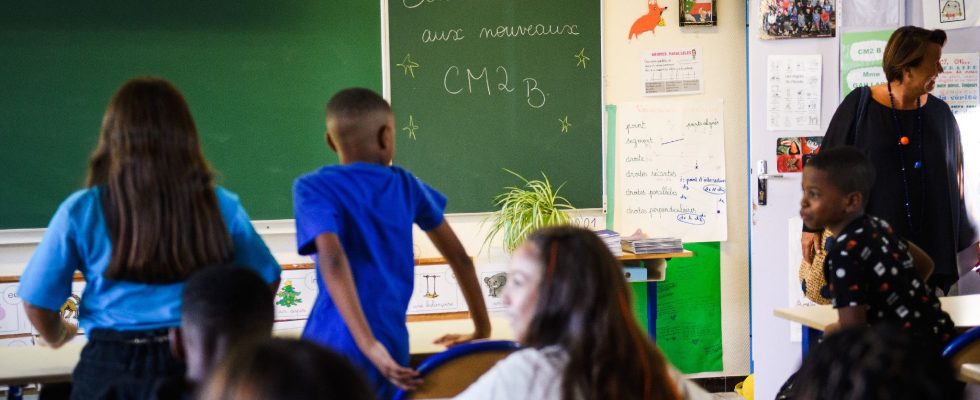For his first return as Minister of Education, Gabriel Attal multiplied announcements and promises to improve the French education system, during his press conference on August 28. A 2023-2024 school year whose priority will be “to raise the level” by strengthening in particular fundamental knowledge “at all levels”.
Echoing these statements, the Institut Montaigne, a think tank and influence group defending a liberal economic vision, publishes this Monday, September 4 its recommendations to go further, via two notes.
Believing that the current system faces a “continuous decline” compared to other developed countries, the think tank recommends “ambitious and lasting changes are necessary”. In particular, structural reforms to reduce educational inequalities.
Improving both learning and assessment
The first note from the liberal think tank concerns the important points on which public authorities should focus. The institute thus lists five different issues, the first of which echoes recent statements by the Minister of Education: the strengthening of fundamental knowledge.
This first passes through primary school, for the think tank, which recommends improving “the mastery of the fundamentals of mathematics and reading” while the attention paid to these classes is “still too timid and very far removed from the orientations taken by the most efficient educational systems.
Another teaching to improve, according to the Institut Montaigne: “the teaching of digital technology and foreign languages”. For the think tank, a good learning of these two subjects is “an essential condition for successful civic and professional integration”, in particular to meet future professional needs.
Beyond learning itself, the think tank also stresses the need to review the school evaluation system. If the Institut Montaigne notes “recent advances”, it believes that France “struggles to lay the foundations of a real culture of evaluation and transparency”. He advocates more evaluations “accessible by all”.
Solve the educational malaise on both sides
The last two points put forward concern the malaise felt by the actors of the French education system. First, on the teachers’ side: noting that “only 7% of French teachers consider that their profession is rightly recognized”, the think tank calls for the revaluation of this profession “and revitalization of careers”.
A call from the foot which echoes the recruitment difficulties of the State: this year again, more than 3,100 positions have not been filled in the teacher competitions, recalls AFP.
Finally, the Institut Montaigne points to the need to review the foundations of the French college in order to better “help the most fragile students” and “stimulate the best”. For the think tank, the college causes “educational malaise” to students, in particular its lack of diversity in the courses and its failure to erase educational inequalities. The Inequalities Observatory demonstrated in January 2023 that “the French school succeeds with the most advantaged students”.
This last problem also makesa note of recommendations published separately by the Institut Montaigne, which formulates ten proposals to promote “the success of all, during the first years of schooling”. The Institut Montaigne considers it particularly useful to encourage “strongly” teachers whose “student progress is higher than the national average” to work in priority schools and neighborhoods. A possible selection by a new tool “for measuring the effectiveness of the work of teachers”.
Always fewer students per class and more support
Another proposed measure: continue the doubling and capping of the number of students in classes. While the government has already reduced this number “by half in priority education areas”, according to the daily Le Figaro, the Institut Montaigne also calls for splitting the middle section classes in these areas, in particular to “constitute a block of four years dedicated to mastering the fundamentals”. A measure estimated at 400 million euros, according to the note.
Last major theme of the recommended measures: identify more precisely the students in difficulty and help them accordingly. In particular, by strengthening “the learning holiday system”, a refresher program outside school periods, but also by establishing “local tutoring in charge of the fight against failure and school inequalities”.
Similarly, the think tank is in favor of experimenting with “strong cognitive stimulation programs from an early age (4 to 6 years old) thanks to tight supervision in conjunction with families” in priority areas. Personalized measures which could however “stigmatize” the pupils concerned according to several educational actors, quotes Le Figaro. Imperfect solutions which could, in any case, take “at least a decade to produce their first effects”, according to the Institut Montaigne.
